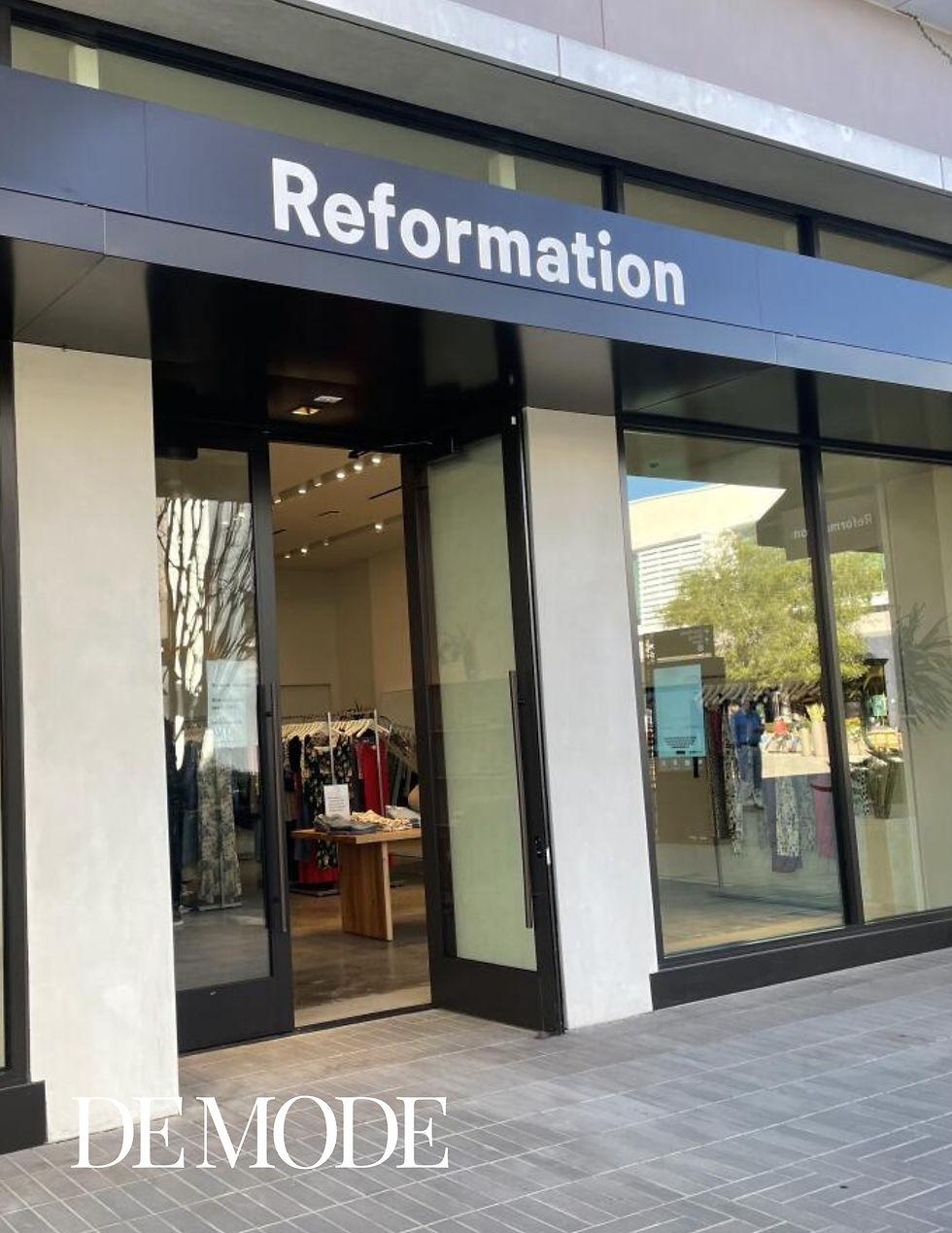"SUSTAINABLE AND ETHICAL FASHION BRANDS - SUPPORTING SUSTAINABLE FASHION INDUSTRY"
- DE MODE

- Jan 28, 2024
- 2 min read
ORIGINALLY PUBLISHED IN DE MODE | FASHION
Article Published on: 28TH JAN 2024 | www.demodemagazine.com
In a world increasingly conscious of its environmental and social impact, the fashion industry stands at a crossroads, facing mounting pressure to adopt sustainable and ethical practices. As consumers demand transparency and accountability, a new wave of fashion brands has emerged, dedicated to promoting sustainability and ethical standards throughout their supply chains. In this exploration, we shine a spotlight on three pioneering brands that exemplify the principles of sustainability, ethical production, and social responsibility, driving positive change within the fashion industry.
1. Patagonia: A Beacon of Environmental Stewardship
Since its inception in 1973, Patagonia has been a trailblazer in sustainable fashion, prioritizing environmental conservation and social responsibility at every stage of its operations. Committed to reducing its carbon footprint, Patagonia employs innovative materials and production techniques to minimize environmental impact while ensuring durability and quality.
Through initiatives like the "Worn Wear" program, Patagonia promotes circularity by encouraging customers to repair, reuse, and recycle their clothing, extending the lifespan of garments and reducing waste. Furthermore, Patagonia invests in grassroots environmental activism, dedicating 1% of its sales to support environmental organizations worldwide, fostering a culture of advocacy and stewardship.

2. Everlane: Transparency and Ethical Production
Everlane has carved a niche in the fashion industry by prioritizing transparency, ethical production, and fair pricing. By fostering direct relationships with factories and suppliers, Everlane ensures full visibility into its supply chain, from sourcing materials to manufacturing processes.
With a commitment to radical transparency, Everlane provides detailed information about its production costs, labor practices, and environmental impact, empowering consumers to make informed choices and advocate for ethical fashion. By partnering with ethical factories and prioritizing sustainable materials, Everlane strives to minimize its environmental footprint while upholding high standards of quality and craftsmanship.

3. Reformation: Sustainable Style Redefined
Reformation has redefined sustainable fashion with its commitment to eco-friendly materials, ethical production, and inclusive sizing. By leveraging innovative fabrics like Tencel, recycled polyester, and organic cotton, Reformation minimizes water usage, chemical pollution, and carbon emissions throughout its supply chain, prioritizing sustainability without compromising style or sophistication.
Through its "RefScale" tool, Reformation quantifies the environmental impact of each garment, providing transparency and accountability to consumers. Moreover, Reformation champions diversity and inclusivity, offering a wide range of sizes and celebrating diverse body types, challenging industry norms and promoting inclusivity in fashion.

Conclusion: Pioneering a Sustainable Future
As the fashion industry grapples with environmental challenges and ethical dilemmas, brands like Patagonia, Everlane, and Reformation are leading the charge towards a more sustainable and ethical future. By prioritizing transparency, ethical production, and environmental stewardship, these brands inspire change, challenge industry norms, and empower consumers to make conscious choices that align with their values.
As consumers, we have the power to drive positive change through our purchasing decisions, supporting brands that prioritize sustainability and ethical practices while holding others accountable for their actions. By supporting sustainable fashion brands, we not only invest in quality garments that stand the test of time but also contribute to a more just, equitable, and sustainable fashion industry for generations to come.



Comments